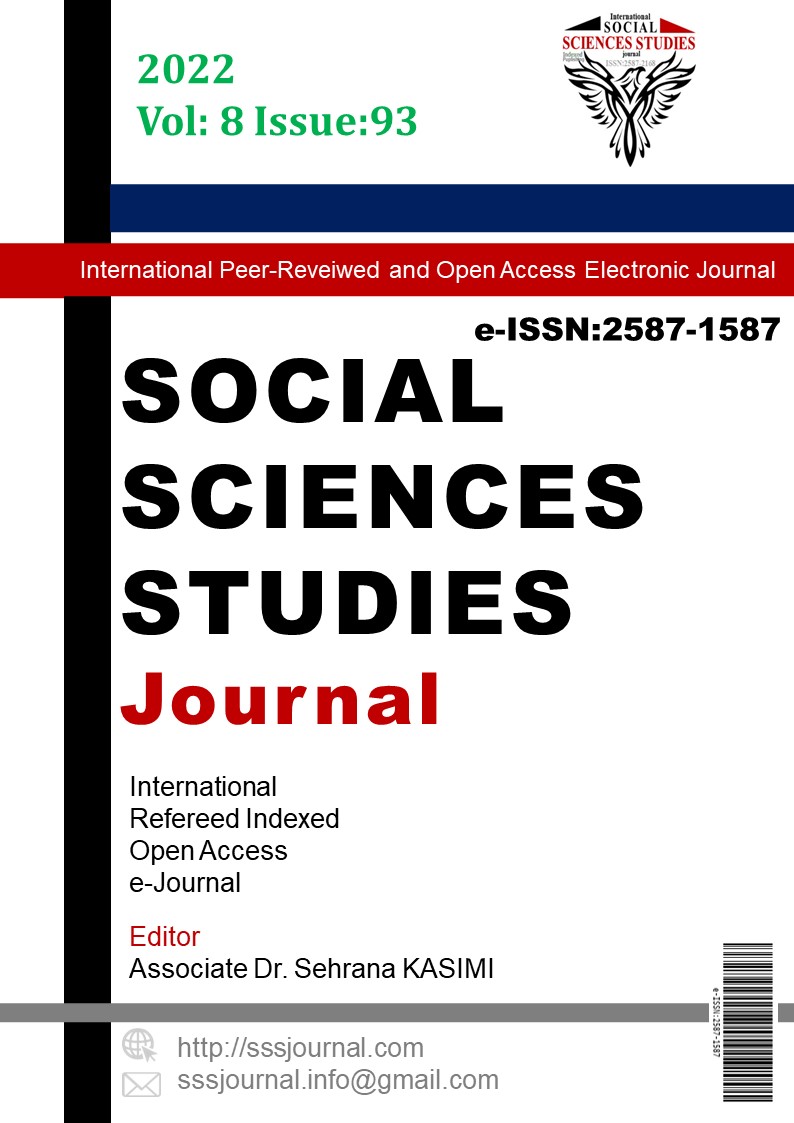Author :
Abstract
Kur'an-ı Kerim, hidayet rehberi olarak insanlığa gönderilmiş son ilahi mesajdır. Cebrail vasıtasıyla Hz. Peygamber’e gönderilen bu mesaj, insanoğlunun geleceğe güvenle bakmasını, gerçek anlamda huzur ve mutluluğu elde etmesini amaçlamaktadır. Kendisini, “aydınlatıcı bir nur, hidayet kaynağı ve gönüller için şifa” olarak tanımlayan Kur’an, muhatap aldığı insana evreni ve onu var edeni tanıtır. İnsana evrende bulunuş gayesini açıklar ve karşılaşacağı sonu haber verir. Doğası gereği sonsuzluk arzusuyla yaşayan insana, umuda erebilmenin yolunu gösterir. İnsan, kendisini gerçekleştirme adına birtakım davranışlar sergiler. İyilik ve kötülük potansiyelini özünde barındıran insanın, idealindeki kurtuluşu ve mutluluğu elde edebilmesi için ne yapacağını bilememesi de çoğunlukla karşılaşılan bir gerçekliktir. Bu noktada Kur’an, insanın aklına ve gönlüne hitap etmekte ve ona hidayet noktasında yol göstermektedir. Özellikle Mekkî surelerde Kur’an, takva ve fücur eksenli iki tür yönelişe işaret etmektedir. Leyl Suresinde de iki tür insan profili çizmekte ve buna bağlı olarak onun çeşitli eylemlerde bulunduğunu haber vermektedir. Bu bağlamda biz, tüm insanlık için geçerli olarak gördüğümüz bu iki yöneliş biçimini ele aldık. İnsan davranışlarına kaynaklık eden temel duyguların ne olduğunu, inanç, yöneliş ve eylemlerine karşılık ahiret hayatında kendisini nasıl bir sonun beklediğini irdeledik. Bu çalışmanın amacı, kendini gerçekleştirme serüvenine girişen insanın yolunu Kur’an’ın rehberlik ışığıyla aydınlatmaya gayret etmektir.
Keywords
Abstract
The Qur'an is the last divine message sent to humanity as a guide to guidance. This message, which was sent to the Prophet through Gabriel, aims to ensure that human beings look to the future with confidence and achieve real peace and happiness. In this respect, the Qur'an defines itself as "an illuminating light, a source of guidance and healing for hearts". The Qur'an first introduces the people to whom it is addressed, about the universe and its creator. Afterwards, it explains the purpose of being in the universe and informs the end that he will encounter. It shows the way to hope for people who naturally live with the desire for eternity. A person is in a state of performing certain behaviors in the name of self-realization. It is a reality that is often encountered that a person who has the potential for good and evil does not know what to do in order to achieve his ideal salvation and happiness. The Qur'an gives special importance to these issues from its first verses. It states that in the suras descended in the first phase of the prophecy, there are two kinds of human orientation. Although the behaviors may be opposite, their underlying purpose is one. Here, the Qur'an draws two types of human profiles in the Surah Leyl, and accordingly informs that he took various actions. In this context, we will consider these two forms of orientation that we see as valid for all humanity. We will examine what the basic emotions are the source of behaviors, what people do to achieve their goals, what kind of end awaits them in the hereafter in response to their beliefs, orientations and actions. Our aim in this study will be to cross the path of the person who embarks on the adventure of self-realization with the guidance mission of the Qur'an.
Keywords
- Ahmed b. Hanbel, (1992). Müsned ( I-VI). Çağrı Yayınları.
- Ahmed b. Hanbel, (1992). Müsned ( I-VI). Çağrı Yayınları.
- Binol, Ali. (2017). "Kur'an'da Geçen Tezekki Kavramı Üzerine Bir Değerlendirme", Bozok Üniversitesi İlahiyat Fakültesi Dergisi. Cilt 11, sayı 11, ss. 185-206.
- Buhari, Muhammed b. İsmail. (1992). el-Câmiu’s-sahih. Çağrı Yayınları. Çağrıcı, Mustafa. (1993). “Cimrilik”, TDV İslam Ansiklopedisi.
- Develioğlu, Ferit. (2013). Osmanlıca-Türkçe Ansiklopedik Sözlük, Aydın Kitabevi Yayınları. Doğan, D. Mehmet. (1996). Büyük Türkçe Sözlük, İz Yayıncılık. TDK Yayınları.
- Ebû Hayyan el-Endülüsî. (1983). Tuhfetü’l-Erîb bimâ fi’l-Kur’âni mine’l-Garîb, thk. Semîr el- Meczûb. el- Kütübü’l-İslâmî.
- el-Begavî, Huseyin b. Mes‘ûd. (2000). Me‘âlimü’t-tenzîl, thk. Abdürrezzak el-Mehdî. Dâru ihyâi’t-türâsi’l-‘Ârabî. el-Cürcânî, Seyyid Şerif. (1983). et-Ta‘rîfât, thk., İbrahim el-Ebyârî, Dâru’r-reyyân li’t-türâs.
- el-Ezherî. (1964). Tehzîbu’l-Luga, thk. ʿAbdusselâm Muḥammed Hârûn-Muḥammed ʿAli en-Neccâr, el- Muʾessesetu’l-Mıṣriyyeti’l-ʿÂmme li’t-Teʾlîf ve’l-Enbâʾ ve’n-Neşr.
- el-Ferrâ, Ebu Zekeriyya Yahya b. Ziyad. (1983). Me‘ânii’l-Kur’ân. ‘Âlemu’l-Kütüb.
- el-Fettenî, Muhammed Tahir. (1976). Mecmau Bihâri’l-Envâr fî Garâibi’t-Tenzîli ve Letâifi’l-Ahbâr, Matbaatü Mecelleti Dâirati’l-Me‘ârif.
- el-İsfehânî, Râgıb. (2012). el-Müfredat li Elfâzi’l-Kur’ân, thk. M. Seyyid Keylânî. Dâru’l-Maʿrife. el-Vâhidî, Ali b. Ahmed. (1995). el-Vecîz. Dâru’l-Kalem.
- el-Yezîdî, Abdullah b. Yahya. (1987). Garîbu’l-Kur’ân ve Tefsîruhu, thk. Abdurrazzak Huseyn, Müessesetu’r- risâle.
- Gezgin, A. Galip. ((2005). Kur’an Meâllerinde “Takva” Kelimesinin Türkçe’ye Çeviri Sorunu. İnsan Bilimleri Araştırmaları, Yıl: 7, s. 14, ss. 199-218.
- Halil b. Ahmed. (2003) Kitâbu’l-‘Ayn, thk. ʿAbdulḥamîd Hindâvî, Dâru’l-Kütübi’l-ʿİlmiyye. İbn Âşûr, Muhammed Tahir. (1984). et-Tahrîr ve’t-Tenvîr. ed-Dâru’t-Tûnisiyye.
- İbn el-Yezîdî, Abdullah b. Yahya. (1987). Garîbu’l-Kur’ân ve Tefsîruhu, thk. Abdurrazzak Huseyn, Muessesetu’r- İbn Kesîr. (1999). Tefsîru’l-Kur’âni’l-‘Azîm, thk. Muṣṭafā es-Seyyid. Muessesetu’l-Ḳurṭuba.
- İbn Mâce, Muhammed b. Yezid. (1992). Sünen. (I-II), Çağrı Yayınları.
- İbn Manzûr, Cemâlüddîn Muhammed b. Mükerrem. (1999) . Lisânü’l-‘Arab, thk. Emin Muhammed Abdülvehhab- Muhammed es-Sâdık el-beyî, Dâru ihyâi’t-türâsi’l- ‘arabî.
- İzzet Derveze. (1997). et-Tefsîru’l-hadîs, trc. Mehmet Baydaş - Vahdettin İnce. Ekin Yayınları.
- İzutsu, Toshihiko. (2013). Kur’an’da Allah ve İnsan, çev. Süleyman Ateş, Yeni Ufuklar Neşriyat.Kurtubî, Muhammed b. Ahmed el-Ensârî. (1995), el-Câmiu‘ li Ahkâmi’l-Kur’ân. Dâru’l-Fikr.
- Kuşeyrî, A. b. Hevâzin. (1971). Letâifu’l-İşârât, thk. İ. el-Besyûnî. Hey’etü’l-âmme el-Mısriyye. Kutub, Seyyid. (1972). Fi Zılâli’l-Kur’ân, Dâru’ş-Şuruk.
- Mâverdî, Ali b. Muhammed. (1982). en-Nüket ve’l-Uyûn, thk. ʿAbdulmaḳṣûd b. ʿAbdurraḥîm. Dâru’l-Kütübi’l- ʿilmiyye.
- Mevdûdî, Ebu’l- ‘Alâ. (1989). Tefhîmu’l-Kur’ân, trc. Muhammed Han Kayanî vd., İnsan Yayınları. Murtaza Mutahharî. (1993). İsâmî İktisâdın Felsefesi, çev. Kenan Çamurcu, İnsan Yayınları.
- Özdemir, Faruk. (2015). Kur’an’da Cimrilik Anlamını İhtiva Eden Kavramların Etimolojik ve Semantik Analizi, İlahiyat Araştırmaları Dergisi, sy. 4, Aralık ss. 59-91.
- Râzî, Fahruddin M. b. Ömer. (1999). Mefâtîhu’l-Gayb, İhyâut-türâsi’l- ʿArabî.
- Râzî. (1988). Tefsir-i Kebir Mefâtihu’l-Gayb, trc. Kılıç, S., Cebeci L., Akçağ Yayınları.
- Saruhan, M. S. ( 2003). İslam Ahlakında İsraf ve Cimrilik, İslami Araştırmalar Dergisi, c. 16, sy. 4, ss. 640-647. Şenkîtî, Muhammed el-Emin. (1997). Edvâu’l-beyan fî îdahi’l-Kur’ân bi’l-Kur’ân. Dâru’l-Fikr.
- Uludağ, Süleyman. (2010). Takvâ, TDV İslâm Ansiklopedisi.
- Zebîdî, Muhammed Murtaza. (1965). Tâcu’l-ʿArûs, thk. Heyet, Maṭbaʿatu Hukûmeti’l-Kuveyt.
- Zeccâc, İbrahim b. Serî. (1988). Me‘ânii’l-Kur’ân ve İ‘râbuhu, thk. Abdülcelil Abduh Şelebî. ‘Âlemu’l-Kütüb. Zemahşerî, (1407h.). El-Keşşâf an Hakâiki Gavâmizi’t-tenzîl. Dâru’l-Kütübi’l-‘Arabî.





